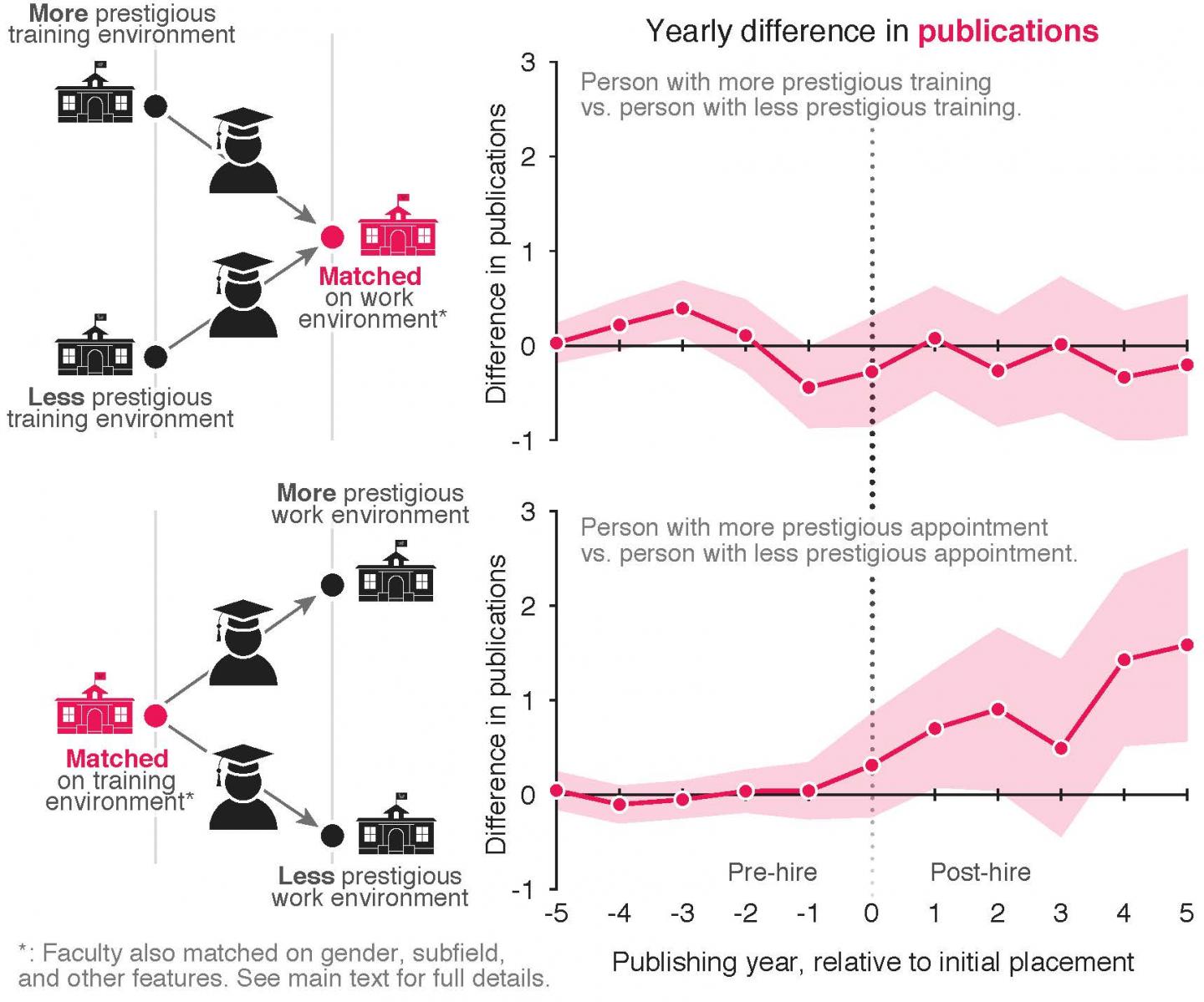
Credit: Samuel F. Way
What matters more to a scientist’s career success: where they currently work, or where they got their Ph.D.? It’s a question a team of researchers teases apart in a new paper published in PNAS. Their analysis calls into question a common assumption underlying academia: that a researcher’s productivity reflects their scientific skill, which is reflected in the prestige of their doctoral training.
It’s true that faculty at prestigious universities publish more scientific papers and receive more citations and awards than professors at lower-ranked institutions. It’s also true that prestigious schools tend to hire new faculty who hold Ph.D.s from similarly prestigious programs. But according to the authors of the new study, an early career researcher’s current working environment is a better predictor of their future success than is the prestige of their doctoral training.
“Pedigree is not destiny,” says Aaron Clauset (CU Boulder, Santa Fe Institute), a co-author on the paper. “Our analysis supports the fairly radical idea for academia that where you train doesn’t directly impact your future productivity.”
The team looked at two basic measures of academic success — productivity (how many papers a researcher publishes) and prominence (how often their work is cited) — of 2453 tenure-track faculty in all 205 Ph.D.-granting computer science departments in the US and Canada during the five years before and five years following those individual’s first faculty appointment.
“We wanted to disentangle the impact of environment on productivity and prominence, and to isolate the effects of where someone trained versus where they went on to work as faculty,” says lead author Samuel Way (CU Boulder). “On the prominence side, people do retain some benefit from having studied in a prestigious Ph.D. program. They continue to accumulate citations from their doctoral work.”
But the prestige of the training program seems to play little role in how many papers researchers go on to produce once they begin their appointments in a new place. “Someone like me, who trained at Colorado, and someone from MIT… if we both end up at Stanford, our productivity will look the same,” says Way.
The authors identify several possible mechanisms driving the increased productivity of faculty at more prestigious institutions. Selection criteria in hiring, expectations for high productivity once hired, and selective retention of productive faculty were all considered. “We only find weak evidence for each,” says Way. However, the prestige of the current work environment had a strong effect on productivity.
Identifying the underlying “forces that tilt the scientific playing field in favor of some scientists over others,” as Clauset says, is important for identifying and potentially correcting the systemic biases that may be limiting the production of scientific knowledge.
“…our findings have direct implications for research on the science of science, which often assumes, implicitly if not explicitly, that meritocratic principles or mechanisms govern the production of knowledge,” write the authors. “Theories and models that fail to account for the environmental mechanism identified here, and the more general causal effects of prestige on productivity and prominence, will thus be incomplete.”
###
Media Contact
J Marshall
[email protected]



